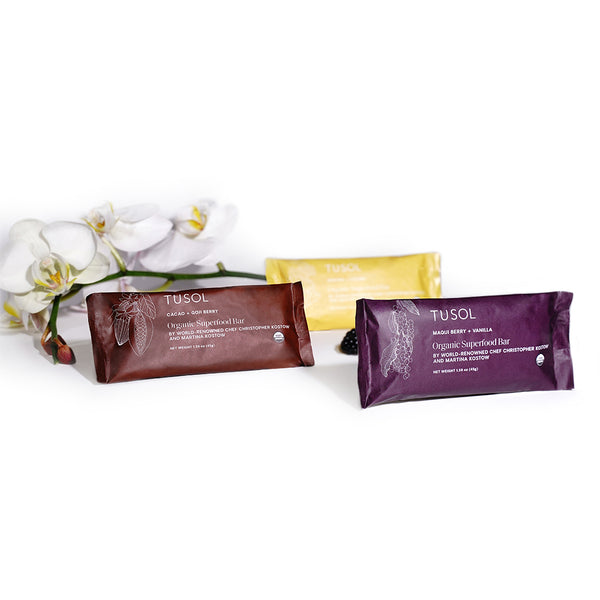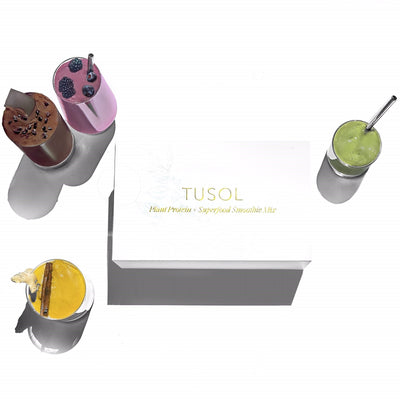Anxiety plagues all of us from time to time, but for some people, it can become a repeating disorder that disrupts everyday life and makes it difficult to function. Fortunately, knowledge about what triggers, relieves, and prevents anxiety continues to evolve. As such, with a bit of research and preplanning, it’s possible to find innovative ways to reduce tension and stress and combat anxiety’s most debilitating elements. TUSOL can help you take the guesswork out of eating a nutritious diet with specially formulated smoothies designed to combat a range of health ailments.
Defining Anxiety
According to the American Psychological Association, anxiety manifests in different ways. Some people can identify what triggers an anxiety attack, like being rushed or late, feeling overwhelmed with work, or encountering a nerve-wracking situation, like public speaking. Some people are able to take steps to proactively reduce their anxiety, or even avoid it, while others are often caught off guard and become quickly overwhelmed. From a physical, mental, and emotional standpoint, some forms of anxiety are mild, while others can result in symptoms that mimic severe cardiac distress, disorientation, or even loss of consciousness. The most common signs of anxiety are rapid heartbeat, racing thoughts, labored breathing, sweating, and sometimes, a feeling of impending doom.
Identifying Anxiety-Producing Situations
One of the first steps in combating anxiety is pinpointing when it is likely to hit you, and why. For example, you might become anxious when you have to give a presentation, when you’re stressing over an interpersonal disagreement with a friend or family member, or when you’re doing bills or driving in heavy traffic. According to Healthline, recognizing what creates a feeling of anxiety can help you avoid situations, or at least, be better prepared for managing the anxiety once it strikes. For example, while you might not be able to decline giving a verbal report to your boss, you may be able to mitigate the impact of anxiety by being prepared, rehearsing, and going through stress-reduction exercises in advance of your meeting.
Effectively Managing Anxiety
Being proactive is the ideal way to manage your anxiety. Some solutions are simple. If you know being late makes you panic, learn how to better manage your time so you don’t find yourself in that situation. If being in crowded spaces makes you uncomfortable, avoid them to the extent possible, while also devising solutions to help you through necessary encounters. For example, if you have to fly, you might ask for preboarding privileges, buy the seat next to you, and wear noise-cancelling headphones during the flight to reduce stimuli. The better you become at identifying triggers, and recognizing what is and isn’t within your control, the more proactive you can be in mitigating the circumstances that create anxiety.
Practicing Mindfulness
Some people are able to reduce or even eliminate anxiety through mindful practices. This means regularly practicing meditation, relaxation technique, and measured breathing. When you do these things on a regular basis, they become a habit, and you can call them into action when you feel anxiety coming on. For example, if you find yourself feeling claustrophobic on an elevator, you may be able to close your eyes and begin measured breathing as a way to center and relax yourself. If you find yourself in a disagreement that becomes heated, you may be better able to step back, disengage, and refocus your energies before things escalate. These holistic approaches are highly beneficial, as they cost nothing, can be practiced in just about any environment, and can help you feel a sense of control over your emotions.
Get To The Root Of Anxiety
Sometimes the thing you think is triggering anxiety is not really what’s underlying your distress. You may actually be experiencing “situational anxiety,” in which certain circumstances are eating at you. For example, if you have anxiety driving to work each day, it may not be the heavy traffic that’s bothering you, but the job itself. If you’re unfulfilled in your profession, it might be time to consider going back to school and getting an advanced degree in an in-demand field like information technology, data analytics, or cybersecurity. An online program can give you a solid work-life balance. Taking control of your life and your future in this type of proactive way can go a long way in decreasing your anxiety.
Managing Your Diet
There are some foods and beverages that are shown to exacerbate and to calm anxiety attacks. For example, an excess of caffeine, sugar, and alcohol can cause some people to have higher degrees of anxiety. Concurrently, foods like dark leafy greens, chamomile tea, and foods rich in antioxidants - like dark chocolate - can help reduce anxiety. Some scents are calming - lavender, for example, is shown to have relaxing properties that can help soothe you in the midst of an anxiety attack. If you regularly suffer from anxiety, try keeping a food diary so you can begin making connections to what makes anxiety worse, or alleviates your symptoms. Regular exercise and good sleep habits can also help you keep stress and anxiety at bay.
Medical Intervention
For some people, medical intervention can help address issues related to stress and anxiety. If you feel your anxiety levels are difficult to manage, talk to your primary care provider. You may benefit from regular or “as needed” medication to help you prevent or combat panic attacks. You might also benefit from behavioral healthcare therapies that will help you identify underlying emotional and mental elements that contribute to a sense of being overwhelmed. Never be embarrassed or uncomfortable seeking mental health care. Untreated anxiety can potentially have a negative impact on how you live, work, and interact with others, and is usually a very manageable condition.
Unchecked anxiety has the potential to reduce enjoyment of life, and even lead to other health conditions. Acknowledge your tiggers and get help identifying and treating their underlying causes. You’ll be happier and healthier for your efforts.
TUSOL offers a wide range of products designed to address varying health and nutrition needs. Visit the site today to learn more.














